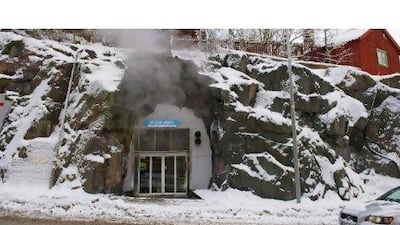WASHINGTON // As companies that provide server space for WikiLeaks in the US and Europe abandon the whistle-blower website, along with the company that handles its online payments, free speech activists are beginning to stir, accusing authorities of censorship.
WikiLeaks went off-line three times in the US last week and has been under what it has claimed to be a massive cyber attack since it began posting some 250,000 classified diplomatic cables on November 28.
On Saturday, WikiLeaks servers in France also went off-line, and WikiLeaks was referring people to its server in Switzerland, www.wikileaks.ch.
In addition, PayPal, the company that handles WikiLeaks online financial transactions, announced it had frozen the site's account.
This followed a decision on Thursday by the US company Amazon.com to stop hosting the website, a decision critics said attributed to political pressure. On Tuesday, Joseph Lieberman, a US senator and the chairman of the Senate's homeland security committee, had questioned Amazon about its relationship with WikiLeaks and had urged US internet providers to stop hosting the site.
Amazon on Thursday denied that political pressure had had anything to do with its decision and said it had ended its relationship because WikiLeaks had breached its contract by not owning the rights to its content.
But Human Rights First, a US civil rights group, urged Amazon to be more transparent about its decision and drew comparisons with China and Egypt, both countries that have periodically restricted access to the internet and been censured by the US for doing so.
Amazon's actions "affect the rights of millions of individuals today," Elisa Massimino, the president of Human Rights First, wrote in an open letter to Jeff Bezos, the chief executive of Amazon.
The decision "will help determine whether the internet of tomorrow lives up to its promise to provide people with greater freedom to express themselves and organize or, instead, becomes simply another forum where governments exercise unjust control over the rights of their citizens."
Even as online companies are severing their relationships with WikiLeaks, US officials are trying to downplay the significance of the revelations. In an interview on Friday with the BBC, Hillary Clinton, the US Secretary of State, said in "many conversations" with her counterparts last week she found no "hesitancy".
Robert Gates, the secretary of defence, on Tuesday rejected suggestions that the WikiLeaks documents had caused a diplomatic crisis and said the consequences for US foreign policy would be "fairly modest".
"The fact is, governments deal with the United States because it's in their interest, not because they like us, not because they trust us, and not because they believe we can keep secrets."
The US administration, Mr Gates said, is working to better protect its classified documents. Yet there have always been leaks, and they are not likely to end. Indeed, Mr Gates suggested that, "every other government in the world knows the US government leaks like a sieve, and it has for a long time."
That tension between a state's inclination toward secrecy and its citizens' desire for transparency is constant, said Thomas Blanton, the executive director of the National Security Archive at George Washington University.
"All bureaucracies all over the world keep as many secrets as they can. Part of our job as journalists, as scholars and historians - as citizens actually - is to push back against this knee-jerk secrecy. That secrecy is what allows for corruption and gives room to illegal operations. It leads to, it encourages and it enables abuse of power."
An independent non-governmental research institute, the National Security Archive, collects and publishes declassified documents obtained through the 1967 Freedom of Information Act. One of its objectives is to promote government accountability.
"If the government believes it can mount operations in total secrecy, that very secrecy will lead to abuse of power," said Mr Blanton. "So part of the reason to have a fundamental presumption that government information is going to become open sooner or later is to serve as a deterrent for bad behaviour now."
WikiLeaks' practices have been denounced as irresponsible for not following an ethical review of the material before it is published.
But Mr Blanton said he sensed that WikiLeaks was beginning to practice greater selectivity, and pointed out that neither the Afghan war logs (released earlier by WikiLeaks) nor the latest diplomatic cables were published in full from the outset. Indeed, the Afghan logs are still not all out, apparently in an effort by WikiLeaks to ensure that their release endangers no one.

